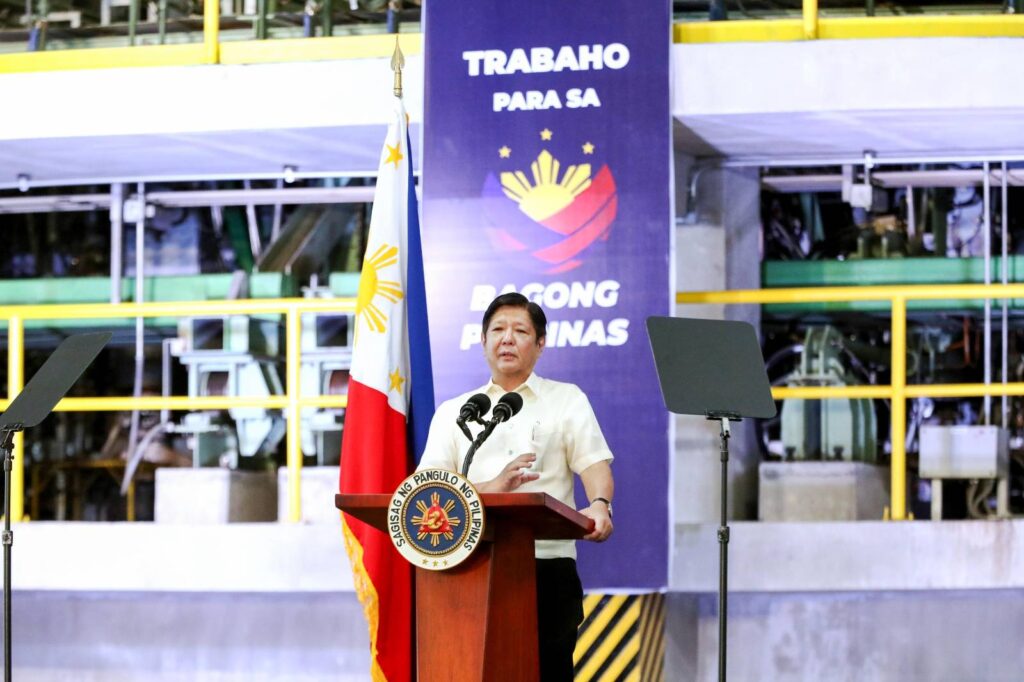
President Ferdinand “Bongbong” Marcos Jr. delivers his speech during the inauguration ceremony of a steel plant in Compostela. | Photo courtesy from Presidential Communications Office
CEBU CITY, Philippines — President Ferdinand “Bongbong” Marcos Jr. has called on the government agencies and the private sector to come together to develop the steel industry in the Philippines.
Marcos said this in his speech during the inauguration of a steel plant in Compostela town in northern Cebu on Tuesday, July 9.
He said that “the government and private sector has to do more to develop the industry further” since “steel is the backbone of many industries and many industries depend on steel for their further development.”
READ MORE:
Cebu City plans to develop a P10-billion creative industry district
World Bank: Trunk line of Cebu BRT may be completed this August
SteelAsia sets P65-B expansion in next four years
The President said that at present, the Philippines is the only country among the Association of Southeast Asian Nations (ASEAN) who does not have its own integrated steel mill. “Thus, there is limited production of certain steel products as the country still imports basic raw materials.”
“To support our social and economic growth, I encourage everyone to work with us in addressing the remaining supply chain gaps in the steel industry.I invite all stakeholders to pursue more investments aimed at reducing, if not eliminating, the limited raw materials situation,” he added.
With this, Marcos has called on the Department of Trade and Industry (DTI) as the leading agency to work on it, together with the Department of Energy (DOE) “and other agencies and stakeholders to resolve the industry’s concerns regarding high power and logistics costs, which make up the bulk of its production plants inputs.”
Marcos then said that he looked forward to the DTI and DOE along with the other agencies to formulate and submit to him a concrete and feasible plan to improve the country’s steel trade balance for the following years.
The President also told DTI to update the iron and steel roadmap “to ensure its continued stability and relevance amidst domestic and global challenges and trends.”
“By localizing the production of basic steel products, we contribute to the generation of more inclusive and sustainable opportunities, the diversification of our steel industry, and the stability of our economy,” he said.
Aside from the government agencies, Marcos also urged all the stakeholders “to pursue more investments aimed at reducing, if not eliminating, the limited raw materials situation” for the country’s social and economic growth.
“I encourage everyone to work with us in addressing the remaining supply chain gaps in the steel industry,” he said.
Marcos also said that there still much “needs to be done [toward] achieving a reliable supply chain that will give birth to a new and integrated manufacturing [industries].”
He added that once the steel plant in Compostela would become fully operational, it would have an annual production capacity of one million tons of rebar, making it the country’s largest steel plant.
The event was attended by the proponents of the steel plant and its employees, Compostela municipal officials and stakeholders, and DTI Secretary, Secretary Fred Pascual, among others.